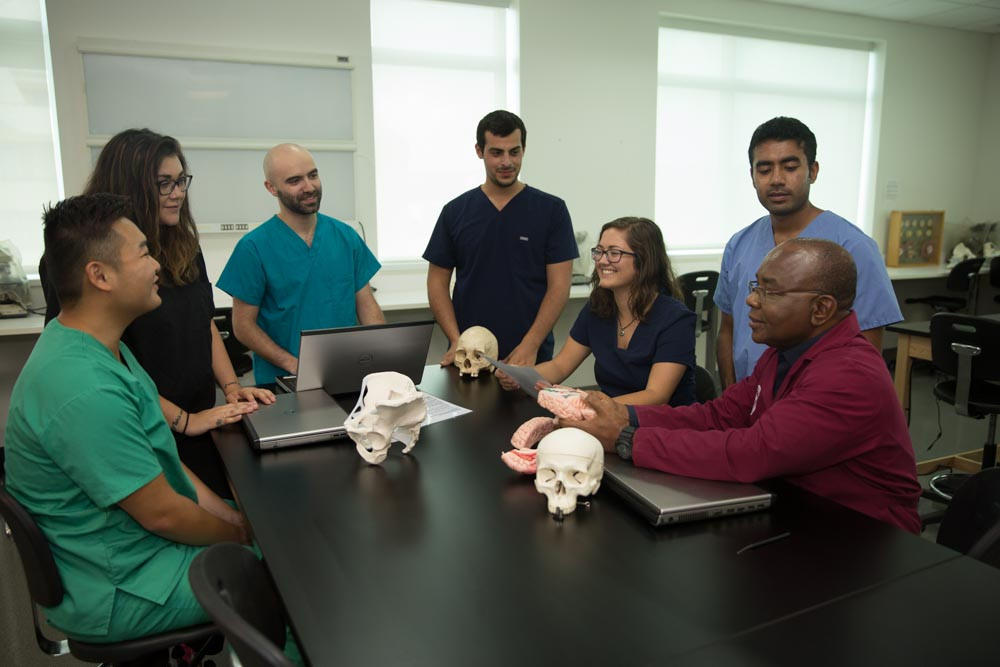When to Get Your Thyroid Checked
The thyroid is the small, butterfly-shaped gland immediately beneath the larynx on each side and anterior to the trachea responsible for synthesizing and secreting the thyroid hormones thyroxine (T4) and triiodothyronine (T3).
When functioning properly, thyroid hormones regulate everything from heart rate to metabolism and appetite to vitality.
If the gland stops working properly, you may begin to experience a wide range of seemingly innocuous symptoms.
Many adults dismiss weight and mood changes as normal parts of aging, but these may be symptoms of a thyroid problem.
Hyperthyroidism vs. Hypothyroidism
The most common thyroid disorders are hyperthyroidism or hypothyroidism.
Hyperthyroidism (an overactive thyroid) occurs when the thyroid gland produces more hormones than the body needs. This can cause increased appetite, heart palpitations, shaking, difficulty sleeping, excessive sweating, irritability, anxiety, and sometimes vision changes. Hyperthyroidism impacts roughly one percent of people in the United States, and women are ten times more likely to develop an overactive thyroid than men.
Hypothyroidism occurs when the thyroid gland does not produce enough thyroid hormones. Extremely low thyroid hormone production — which can be life threatening — is called myxedema in adults and cretinism in newborns. Typical symptoms of this thyroid disease include fatigue, sensitivity to cold temperatures, weight gain, and constipation. Hypothyroidism can impact anyone, but women over the age of 60 are more likely to develop the condition.
What Causes Thyroid Problems?
Thyroid problems often result from prolonged exposure to chemicals or a poor diet. Other risk factors include:
- A family history of thyroid disease or such thyroid-impacting autoimmune disorders as Hashimoto’s disease or Graves’ disease
- Smoking
- Taking medications with high levels of lithium and iodine
- Pregnancy
- Low iodine intake
- Illness
- Benign growths on the thyroid gland
- Inflammation of the thyroid gland
- Previous thyroid treatments
- Noncancerous tumor on the pituitary gland
Stressful lifestyle changes, such as the loss of a loved one or even childbirth, may also contribute to developing thyroid problems. Regular thyroid screening can help your doctor detect problems early, manage any symptoms, and prevent an existing condition from getting worse.
How Do You Know You Have a Thyroid Issue?
Thyroid disorder symptoms include:
- Unexplained weight fluctuation
- Constant fatigue
- Appetite changes
- Increased or decreased heart rate
- Increased anxiety or irritability
- Muscle weakness
- Vision changes
- Sensitivity to temperatures
- Brittle or thinning hair
- Difficulty sleeping
- Bulging eyes
- Numbness or tingling in hands
- Constipation, diarrhea, or more frequent bowel movements
- Thinning skin
- Excessive sweating
- Swelling or an enlarged neck due to a goiter (an enlarged thyroid gland)
- Changes in menstrual cycle
- Increased blood cholesterol levels
- Changes in libido
- Drooping eyelids
- Puffy eyes and face
- Memory problems
If you think you may have a thyroid problem, speak with your primary care physician, who may recommend blood tests to check thyroid levels.
Medical interventions can help you manage thyroid disorders, but there are steps you can take at home to help maintain thyroid health.
Preventative Measures and Treatments
Eating a well-balanced diet is great for maintaining overall health and wellness, but it isn’t a replacement for medical treatments if you have a thyroid disorder. For hypothyroidism, doctors may prescribe a synthetic hormone (levothyroxine) to help maintain normal thyroid hormone levels in the blood. For hyperthyroidism, the treatment depends on the cause of the problem. Thyroid lowering medications can help, but surgical intervention is sometimes required.
If you have hypothyroidism, avoid consuming excess amounts of soy and such cruciferous vegetables as turnips or cabbage. Soy can negatively impact how your body absorbs thyroid medication, and cruciferous vegetables can decrease thyroid hormone synthesis. You should also avoid excessive amounts of caffeine and iodine-rich foods. Large amounts of caffeine can worsen such hypothyroid symptoms as anxiety, insomnia, and heart palpitations. Large quantities of iodine-rich food can cause the thyroid gland to produce more hormones than the body needs.
Doctors have also discovered a relationship between celiac disease and hypothyroidism. If you suffer from celiac disease as well as hypothyroidism, avoiding gluten can help decrease inflammation and improve the absorption of thyroid medication.
Maintaining a balanced diet and limiting stress can help reduce chronic fatigue symptoms and improve mental health. Reducing exposure to such toxins as tobacco, phthalates, and perfluorinated chemicals can also improve thyroid health. You can also boost your immune system, bone strength, and thyroid function by taking such supplements as probiotics, vitamin D, and selenium.
Risks of Untreated Thyroid Disorders
If left untreated, hyperthyroidism can cause an irregular heart rhythm, heart failure, fertility issues, blood clots, brittle bones, or stroke. It may also cause the thyroid gland to swell, leading to a goiter. Goiters are unsightly but not usually dangerous, and they do require medical treatment.
Untreated hypothyroidism can also cause goiters as well as infertility, birth defects, peripheral neuropathy, or myxedema. Hypothyroidism can cause high blood cholesterol levels and eventually atherosclerosis. Untreated hypothyroidism in a newborn child can lead to physical and intellectual disabilities.
What Should You Do Next?
Thyroid screenings will tell you if your thyroid is working properly or not. Talk to your physician if you display any hyper- or hypothyroid symptoms, believe you are at risk, or have a family history of thyroid issues.
Meet an endocrinologist: Dr. Mike Lemay, MD ('00).
This information was brought to you by American University of the Caribbean School of Medicine (AUC), where we help turn diligent students into medical graduates eligible for residency and practice in the United States, Canada, and beyond. Check out our Doctor of Medicine (MD) program and the requirements for admission, as well as our beautiful campus in Sint Maarten. If you think a career in medicine may be for you, ask for more information or apply today!





